Lots of MP commentary on universities this week including the (lack of) HE financial support measures. Virtual voting in the Commons wasn’t a great success, HEPI re-examine student experience across the 4 regions of the UK, concerns for graduate employment abound, and there is news on REF and KEF.
Most importantly, happy World Earth Day! Do try the google animation – it is particularly special (you get to control the bee!).
Parliamentary News
Virtual Commons – The House of Commons intends to follow a hybrid approach sitting Mon to Wed for approximately 2 hours (and with restrictions on volume of attendance and contact for those (up to 50) actually present in the chamber). These sessions will also be attended virtually to allow a fuller range of MPs and urgent business to take place. Question sessions will be facilitated online through Zoom (let’s hope the Treasury has stretched to procure the paid version otherwise debates may be shorter than usual – and are using passwords!). These sessions will mainly consist of parliamentary, departmental and urgent questions (30 minute sessions) and ministerial statements followed by the standard scheduled business. Operational detail for many aspects of parliamentary business hasn’t been worked out, e.g. how to manage voting and the legislative bills stages. However, a commitment has been made that any MP in the Chamber will be treated the same as one appearing virtually and would only be called to speak if scheduled to. And if a Member is called but cannot be heard or seen due to tech failure they’ll be given the chance to speak again later in the proceedings.
Speaker Sir Lindsay Hoyle said:
- By initiating a hybrid solution, with steps towards an entirely virtual Parliament, we are enabling Members to stay close to their communities, while continuing their important work scrutinising the Government. I do not want Members and House staff putting themselves at risk. By working virtually, this is our contribution to the guidance of stay home, protect the NHS and save lives.”
Dods discuss challenges and how the virtual parliament could work here.
Tuesday saw a trial of the secure voting procedure in the Commons. It was unsuccessful with some entertainingly choice language and a lot of commentary online about MP’s living room backdrops. Work on a more secure solution is taking place and Parliament hopes to have a workable voting system live by ‘early next month’.
Staff changes
DfE Board: Theresa May’s close advisor and campaign leader Nick Timothy has been appointed to the DfE Board as a non-executive director. Research Professional (RP) note Nick is
- a fierce critic of the higher education sector…In a statement issued on 16 April, a DfE spokeswoman said that Timothy would bring “a range of experience that will support our work as we continue to develop our world-leading education system”. Since then, he has been a columnist for the Daily Telegraph, a position he has used to criticise the higher education sector. In August 2017, he wrote in his column that England’s tuition fee system is an “unsustainable and ultimately pointless Ponzi scheme”. RP also point out that Nick is a former director of the New Schools Network—the free schools charity from which Toby Young, the controversial Spectator columnist, resigned in 2018 after criticism of his appointment to the board of the Office from Students, from which he also ultimately resigned.
BEIS select committee chair: Rachel Reeves, who was elected Chair of the prestigious Business Energy and Industrial Strategy select committee, has resigned the Chair role (as required) upon her appointment to the Labour Shadow Cabinet. Several Labour MPs are vying to take over the Chairmanship. Politics Home are running a series profiling each candidate and Research Professional have a short piece. Business presented today states voting will take place electronically to elect the Chair (when is still to be confirmed).
Brexit & Immigration
The EU and UK have agreed three new rounds of Brexit negotiations to take place via video link during the weeks commencing 20 April, 11 May and 1 June.
There is a new poll examining whether the public are supportive of a Brexit deadline extension (47% support, 23% opposed).
There is more information on the UK points based immigration system was released as the Home Office published an introductory employer guide for Post-Brexit immigration.
The Home Office has also further updated the Tier 4 guidance in light of C-19 stating that no one will have a negative outcome through the immigration system due to a circumstance that was beyond their control. It also confirmed that enforcement actions will not be taken against sponsors who are responsible for students absent from studies due to coronavirus and that absences don’t need to be reported when due to coronavirus (e.g. self-isolating or travel). The guidance goes into more detail on distance learning; attendance monitoring during the coronavirus pandemic; English language requirements and pre-sessional courses; ATAS studies; right to work check and child students. It covers extending visas – students whose leave would have expired between 24 January and 31 May, will be able to apply for further leave within the UK. Extended leave will also be provided if students haven’t been able to complete a course/meet all requirements due to other requirements. Other points:
- Students who would normally be subject topolice registrations who are extending leave, and are unable to leave home, will not need to do so.
- There is information regarding working hours and volunteeringfor NHS trusts in particular. Hours will not be restricted to 20 hours per week during term time. Where all study has been suspended, students will be considered on “vacation” and will be able to work full time.
- Right to rent checkshave been adapted so that landlords can see documents over videocalls during this period.
Challenges for the sector
The House of Commons Library have published Coronavirus implications for the FE and HE sectors in England. Library briefings are a good basic introduction to the subject matter presented so if you missed the debate in previous policy updates this library briefing will catch you up on the concerns facing the HE sector.
Exams, offers and clearing
The Financial Times has a longer read on the international admissions crisis.
Education Minister, Gavin Williamson, confirmed A level results will be released on Thursday 13 August, and GCSE results on Thursday 20 August meaning the release dates will mirror all other years. What this means for the HE sector and clearing is still to be clarified. Earlier rumours suggested Government were considering a beefed up clearing with more students encouraged to enter the process than in previous years.
On this Wonkhe wrote: Last week brought news from the Department for Education (DfE) that grades for cancelled A level exams in England will now be published on their originally-planned day of 20 August. Those who have seen drafts of the government bailout package told us that it also included proposals for a “bolstered” Clearing period to encourage students to wait until August to make their final decisions. There’s also no consensus yet about the proposal for number controls next year, with some voices both in government and the sector concerned that it would still enable high-tariff universities to expand at the expense of others.
The ban on unconditional offer making has been extended for a further two weeks until 4 May. The OfS and Government remain vigilant and determined to crack down on providers who find ways to flout the ban. The Universities Minister wrote to Vice-Chancellors last Saturday stating that any new conditional offers to students that asked for lower grades than expected “must be in the best interests of the student and not an unconditional offer by the back door”. The UCAS decision making deadline has also been pushed back and applicants are not required to select their preferred institutions until 18 June.
Disadvantaged tech access: Gavin Williamson announced an online learning support package making laptops and tablets available to disadvantaged children across England to enable remote education for pupils staying at home during the coronavirus outbreak. The provision will be available for children in the most vital stages of their education, those who receive support from a social worker and care leavers. 4G routers will also be available for disadvantaged secondary school pupils and care leavers to access the internet – where those families do not already have mobile or broadband internet in the household.
Some Parliamentary questions in this area:
Q – Helen Hayes: To ask the Secretary of State for Education, what assessment his Department has made of the (a) accuracy of predicted grades for (i) GCSEs and (ii) A-Levels and (b) potential effect of unconscious bias on those predicted grades in terms of (A) gender and (B) race. [34386]
A – Nick Gibb: This is a matter for Ofqual, the Office of Qualifications and Examinations Regulation.
Q – Helen Hayes: To ask the Secretary of State for Education, what discussions his Department is having with universities and higher education providers to ensure that students who are unable to sit their exams for A-Levels and other qualifications as a result of school closures are able to access higher education in the next academic year. [33629]
A – Michelle Donelan:
- The calculated grades awarded this year will be formal grades, with the same status as grades awarded in any other year. The higher education sector has recognised this and is working with us to ensure that this year’s cohort of A-Level students are at no disadvantage when it comes to progression to university because of these unprecedented circumstances.
- Department officials are working closely with Ofqual, UCAS, Universities UK, the Office for Students and others to ensure that the admissions system functions as effectively and efficiently as possible during this unprecedented time.
- The latest guidance for schools and other educational settings can be found here.
Financial sustainability
In last week’s policy update we described how UUK were lobbying the Secretary of State for Education to recognise the dangers and approve a range of stabilisation measures for the HE sector. Gavin Williamson appeared receptive to the requests but no announcements were forthcoming during the opportunities on Friday or Sunday among rumours that the Treasury squashed support spending. Wonkhe have this to say on the matter:
- If the last few days have told us anything, it’s that the government bailout of higher education, when it does land, will be patchy, controversial in parts, arrive in fits and starts, and will likely never be able to deal with all of the gigantic consequences of the pandemic. But to say the conditions for good policy making are imperfect would be an understatement.
- There’s a version of history where at last night’s government coronavirus press conference education secretary Gavin Williamson announced the first major steps of a wholesale bailout of higher education after urging from Universities UK. It would have been a remarkably quick turnaround for the Whitehall machine, and so it proved to be, falling foul of final approval from the Treasury in a joint ministerial meeting on Thursday. In the meantime, low-key announcements were made confirming that universities would have access to the Coronavirus Job Retention Scheme, the Coronavirus Business Interruption Loan Scheme, and the Covid Corporate Financing Facility.
- The bailout was also due to be coming out against a backdrop of further data showing just how rocky things are likely to be over the next year. …Andy Westwood argues that the bailout will build bridges to the sort of sector the government hopes to see, potentially including linking research and development more closely to economic and industrial strategy, and a long-term vision for teaching and student numbers across post-compulsory education. In other words, anyone expecting a bailout to preserve the status quo is likely to be disappointed.
Research Professional’s reports are interesting due to their sources on the inside. They write:
- Whitehall insiders have suggested to Playbook that the extent of the challenge for universities is well understood by the government, but at this moment the feeling is that there is no need to rush out a solution that does not hit the target and merely creates perverse results. For example, UUK’s request that quality-related research funding be doubled from £2 billion to £4bn a year would see much of that cash land at the Universities of Oxford and Cambridge—two of the institutions most able to ride out this storm.
- Playbook has been told by sources close to the discussions that there are three variables at play: first, the short-term loss of income for universities; second, the medium-term loss of demand for higher education; and third, the government’s long-term promises on R&D spending. It is not that the government is disinclined to help out universities—as science minister Amanda Solloway wrote early on in the crisis, it is a government priority that the research base be protected so that the UK has something to bounce back with when the country exits lockdown. Rather, any rescue package will come with expectations, i.e. strings attached. As it was put to Playbook, “something better is possible”.
- With the government firefighting on an hourly basis to get personal protective equipment into hospitals, prop up a shrivelling economy and ramp up testing to a level that would enable any kind of exit from lockdown, universities may be about to learn a harsh lesson concerning their place in the national pecking order. This week, UUK will need to play its cards with care and no little skill.
The last minute news from RP on Wednesday (from a source they are unable to name, presumably at UUK) is that the Government have not told them to rethink their support measures request. Although it was indicated that such a deal will need to encompass a solution on “admissions restraint”, research spending and targeted support for vulnerable institutions.
And on Monday the Government issued guidance about the C-19 support measures universities can access. They also confirmed the Student Loans Company plans to make Term 3 tuition fee payments as scheduled; and we understand maintenance payments will be paid too.
Wonkhe have a blog on the scale of the financial risk for HE providers and whether the doubling of QR funding will be a drop in the ocean or help.
The opposition view
Shadow Minister for Universities, Emma Hardy, has written to the government calling on them to underwrite higher education funding to protect and prevent institutions from going bankrupt as a result of the coronavirus crisis. The letter argues that an over-reliance on international tuition fees and an unequal regional distribution of research grants mean higher education providers are vulnerable to closure or functioning at a reduced capacity, with a damaging effect for jobs and social mobility. Excerpts from the letter:
- Labour is calling on the government to guarantee that no university will be allowed to go bankrupt. The coronavirus pandemic has exposed the failures and weaknesses within the government’s higher education policy. Our universities are not just businesses and should not be treated as such. Our higher education institutes provide value to our country every day, supplying final year medical students to fight on the frontline of our NHS, creating PPE, and providing accommodation for key workers.
The letter goes on to say:
- My greatest concern is that a failure to provide timely and comprehensive support to our universities in the face of this crisis will create “cold spots” in the country for access to higher education to those who benefit from it the most. We know that students from disadvantaged backgrounds, and part-time and mature students, make up the large proportion of commuter students and they will suffer disproportionately if regional HE institutions close.
- ….It is essential therefore, that no institutions are allowed to fall. I welcome your comments that you are looking closely at the Universities UK proposals for comprehensive sectoral support and I would ask again for you to provide a clear message that the security and certainty our Universities are desperately looking for will be available.
- ….I welcome your comments that UK Universities are “open and accessible” and I would ask if you could speak to your colleagues in the Foreign and Commonwealth Office to have a joined up approach in promoting our UK universities and addressing some of the concerns held by some countries on the validity of ‘online degrees’, if only as a short-term measure. It would also be useful to have increased clarity from the Home Office about student visas too.
- I would urge you to look again at convening representatives from institutions, examinations bodies, practitioner unions and students organisations to agree on the timing and character of teaching in the new academic year and ensure that this is communicated clearly to students.
- I am also concerned that teacher assessment, an unequal home schooling experience and ‘digital poverty’ will result in a weaker performance of BAME groups and pupils from disadvantaged backgrounds and that this in turn could impact student admissions. I am keen to know what actions you are taking to ensure that the already disadvantaged are not further disadvantaged
Another perspective
Research Professional (RP) interviewed Daniel Zeichner, Labour MP for Cambridge and Chair of the Universities all party parliamentary group. The interview shows the human side of policies and politicians; the honesty around Labour’s tuition fee approach is refreshing too. Excerpts from comments in the RP interview:
- “Universities are very different [from each other], and some of them are very, very vulnerable. Some rely very heavily on international student income and they must already be in a very difficult situation…the response from researchers and the whole academic community has been uplifting, with the wider public looking to expertise and knowledge for a route out of our difficulties.
- Whether epidemiologists or clinicians, it has also shown the value of appreciating that there is no simple answer—evidence is patchy and has to be interpreted, questioned and contested. This is all part of the daily experience of the university and research community but is not always more widely understood.
- As in so many parts of society, the crisis has highlighted longer-term problems that may now need to be addressed directly. Research funding was overly dependent on cross-subsidy from the lucrative international student market, while the unresolved long-term issues around student funding in general, and the market-based approach in particular, will have to be faced.”
- Zeichner’s fear, he says, is that “some will use the crisis to try to reduce rather than widen access and participation—but that argument will be for when politics resumes as usual”.
When Daniel was pressed on whether Labour’s approach to no tuition fees was right he responded: “It seems that virtually every party has occupied every position on tuition fees at one point or another, which ought to allow us all off the hook slightly, because we’ve all been in all the various places,”
RP write:
- He’s not far wrong—as this HEPI blogpost shows, in the past 16 years, the Labour Party has backed the tripling of undergraduate fees, supported a big cut in fees and is now backing the abolition of fees. The Conservative Party has shifted from opposing fees to tripling them while in power.
- “Having said all that, you can’t start to pluck figures out of the air,” Zeichner says—adding that he was “never entirely convinced” that Labour’s 2015 pledge to cut tuition fees in England to £6,000 “was particularly evidence-based”.
- “I think it was kind of splitting the difference. Once you start down that route, there comes a logic to say if you’re going to reduce fees a bit and replace them with extra public money, you might as well go the whole hog [and abolish fees altogether].”
- Most important, he says, is not implementing a system that “goes back to universities being under-resourced”. “Given we are at the start of a four-and-a-half-year parliament, it may well be time to draw a line and, certainly for the Labour Party in opposition, to have another think about it…I would be perfectly happy to open it up again,” he adds.
- “There does seem to be a growing sense that somehow too many people are going to university and it is not worth doing it. I really think that needs to be countered, because I still think the university experience in terms of social mobility is so incredibly powerful. In a rich country, we really ought not to be saying we can’t afford to do it anymore.”
Knowledge Exchange
Research England has confirmed that the KEF submission deadline has been delayed due to the disruption caused by the pandemic. Submissions are now expected to be made by Friday 16 October 2020. Research England blog on Wonkhe: Now is the time for knowledge exchange.
OfS and Research England have announced the 20 recipients of the £10 million knowledge exchange projects. The projects aim to identify the benefits to students who involve themselves in knowledge exchange activities and partnerships with businesses, engagement with communities, third sector organisations and professional training. Furthermore, to address issues of equality, diversity and inclusion within the KE activities. OfS say
- students play a significant role in this [KE] activity by, for example, establishing start-ups and spin-off companies, and providing skills and expertise for businesses, public services and community groups through consultancy, internships and work placements.
The successful projects aim to explore a range of knowledge exchange activities, including free-to-access courses run in partnership with the NHS for mental health service users, start-ups in the creative industries, and pro bono, social impact-driven consultancy and venture capital services. Flexibility over the projects and timescales has been conferred to adjust for the impact of C-19.
Research
REF delays: UKRI have announced a short consultation on new deadlines for the REF. The consultation runs until 5th May and at BU we will work with RDS on preparing a response. There are two key deadlines in play – the end of the impact assessment period (which may end up being 31st December instead of 31st July) and the submission deadline (which could be 31st March next year).
Research funding
Meanwhile Chancellor Rishi Sunak continues to emphasise the Government’s focus on the levelling up agenda, and particularly how it might boost research and R&D spending levels.
- “We remain very committed to the agenda that we set out before, which was about levelling up and spreading opportunity around this country,” he said. That agenda, including improvements in productivity and investing in infrastructure around the country “will only become more important as we exit from this crisis”.
The Research Professional article continues:
- Graeme Reid, chair of science and research policy at University College London, said it should not be surprising if boosting R&D is high up in any post-Covid-19 budget. “After the banking crisis hit in 2008, the government protected research and innovation—while cutting many other areas of public spending—because it recognised that the UK had become a knowledge economy,” he said. “Now the levelling-up agenda depends on a combination of infrastructure investments that include the UK’s knowledge infrastructure.”
- Diana Beech, a former adviser to three universities and science ministers, said: “It is noteworthy that we now have a government that is intent on being led by the science. Experts are not just back in fashion but at the front and centre of informing the direction of government policy. “For this public trust in experts to last, the science we need to be investing in now is a science which we know will deliver the tangible outcomes our society needs—in this case, vaccinations to fight the coronavirus and economic and social measures to minimise risk to people, supply chains, businesses and jobs.”
PhD students: UKRI have announced that UKRI funded PhD students who cannot continue their research due to C-19 will be allocated additional support funding to extend their study period by up to 6 months. UKRI have issued FAQs here.
R&D Tax Credits: HMRC has published statistics on Research and Development Tax Credits from Corporate Tax detailing the cost of tax credits and the type of companies claiming them.
Regional Inconsistencies in the Student Experience
HEPI published One for all or all four one? Does the UK have a single higher education sector?
The report draws on the Student Academic Experience Survey data from 2015 to 2019 comparing the experiences of students from England, Scotland, Wales and Northern Ireland on seven areas: value, finance, wellbeing, accommodation, pedagogy, workload and regrets. Devolution has resulted in different policies, priorities and funding regimes. As expected, there are both similarities and differences. HEPI conclude:
- it is also fair to conclude that more continues to unite than to divide higher education in the different parts of the UK. In other words, the concept of a single UK higher education sector has sustained despite increasing devolution and increasingly divergent policies in Westminster, Edinburgh, Cardiff and Belfast. This is in line with the concept of higher education as an endeavour that crosses political boundaries.
Nick Hillman, Director of HEPI and the author of the report, said:
- ‘Students in England seem to work less hard than those elsewhere in the UK. Students in Scotland have more positive perceptions about the value of their course and are more likely to believe higher education should be free. Meanwhile, students in Wales tend to think more positively about their academics and students in Northern Ireland are more content, with higher levels of wellbeing. Many of our results are surprising. Policymakers in England have often tried to portray high tuition fees as offering more student choice and a better student experience. Policymakers in other parts of the UK have tended to regard lower student debts as a way to improve student wellbeing. Both these claims are pooh-poohed by the results from students themselves. Nonetheless, it is easy to exaggerate the scale of any differences. The most important finding overall is that any differences in the student experience in different parts of the UK are fairly modest. Despite increasing devolution and increasingly divergent policies, there is still more that unites higher education institutions across the UK than divides them. The current Covid-19 crisis is bringing this home, as higher education institutions across the UK are all facing the same new challenges.’
Social Mobility
The Sutton Trust published a report: Social mobility and covid-19 – Implications of the Covid-19 crisis for educational inequality examining the future challenges to the C-19 generation.
In their weekly newsletter NEON stated outreach projects are suffering as a result of the pandemic [with] The majority of organisations… trying to make the move to replace face to face activities with online resources and sessions.
HEPI have a guest blog: Navigating the aspiration trap: white working-class students and widening access to higher education. PhD Student Alex Blower, with a background in outreach, criticises the aspiration deficit model and argues for more nuance in tackling the white working class access gap.
Wonkhe report:
- The UPP Foundation has invested £100,000 in five university-led projects to tackle pressing issues in access to and progression from higher education. Project commencement will be delayed during the lockdown, but projects were approved prior to the current emergency. Wonkhe have a blog on one of the 5 funded projects. Richard Brabner, Director of the UPP Foundation, said: “These projects to support and develop our communities are more important than ever in light of the developing Covid-19 crisis. We will be working closely with the grant recipients to support them during these exceptionally challenging times, and to help implement their projects once it becomes safe to do so.” Research Professional has a little more coverage
Youth unemployment: Impetus and the Youth Futures Foundation have published a report on youth unemployment and the profile of those young people struggling to access the labour market. It shows that those most likely to be out of work and education are some of the most vulnerable young people, and that the headline numbers overlook some pressing issues such as underemployment. The report also predicts that – even without the covid-19 pandemic – the numbers of young people affected were likely to rise, given economic, demographic and social changes. Excerpts:
- Young people from disadvantaged backgrounds and particular ethnic minorities are disproportionately likely to be NEET or underemployed than their peers. The most common reasons given for not being able to look for work are caring responsibilities or health problems.
- Having been eligible for Free School Meals in Year 11 increases a young person’s chances of being NEET later on by 50%.
Recommendations:
- Effective engagement: Using magnets, including cultural magnets such as music, sports or arts; and financial magnets for example cash vouchers, to ensure that provision looks different to compulsory education and encourages take up
- Delivery of personalised support packages: Including options for employability skills, job search skills, work experience
Graduate Employment
The likelihood of a squeezed job market and economic recession as a result of the worldwide pandemic has been regularly reported. Many parallels have been drawn to the 2008 graduation cohort who struggled to access graduate level employment, and often for a greater duration than other cohorts. Research Professional discuss a similar concern for the coronavirus cohorts. Here are the key points in relation to the call to provide tuition fee relief for the graduating cohort:
- An analysis by the Institute for Fiscal Studies revealed that this year’s graduates are likely to face a squeezed job market as the coronavirus pandemic causes “a huge economic downturn”, leading graduate employers to shut their doors. But this does not mean that the government should cut the debt owed on graduation.
- According to the IFS analysis, published on 18 April, those who graduate during recessions are more likely to end up in non-graduate work than those leaving university in better years, and they are more likely to earn less or be out of work in the first few years after graduation.
- Due to the expected scale of this year’s downturn, the IFS said those graduating in 2020 might have “an especially hard time” and it could take up to 10 years for their earnings to recover. Although graduate earnings fell by around 20 per cent after the financial crash between 2008 and 2013, the IFS said those graduating this year would find it even harder to secure “well-paid employment” and that a hit to their earnings could last “for a considerable period of time”.
- However, the financial think tank warned that that waiving or reducing some tuition fee debt for theses graduates would not be an “appropriate response” as repayment levels are linked to salaries, and a fee reduction would therefore benefit top earners the most. (Source: Research Professional.)
The Guardian has an article describing how large graduate employers are ceasing graduate recruitment programmes and internship opportunities.
NUS Student Safety Net call
The NUS are calling for a student hardship fund and the option for students to retake or be reimbursed for the academic year. A recent student survey conducted by the NUS found that 81% of students are worried about their future job prospects and 95% are concerned about the impact of Covid-19 on the economy.
- 33% of students are at critical risk of being unable to access their education;
- 74% are worried about the risk to their final qualifications;
- Up to 85% of working students may need additional financial support as incomes drop;
- 71% worried about the impact the pandemic will have on their employability
NUS Recommendations:
- A UK Government £60 million national hardship fund, accessible to all students who are currently in further and higher education. The Scottish government has led the way on this, NUS Scotland is calling for this support to be available to all students, including international students.
- An economic package for those who complete their qualifications during the current pandemic, providing access to a grant which can be used for training, reskilling or development.
- The option for every student, in every part of education, to redo this year at no further cost, with full maintenance support, while ensuring those returning to education next year receive high-quality education, training and support
- Reimbursement of one year’s course, college or tuition fees for students who have paid upfront, or a write-off of one year’s debt for those who have paid through loans.
Speaking at NUS’ Student Safety Net campaign launch, Zamzam Ibrahim, NUS National President, said:
- We urgently need a student safety net for all students across the UK. Coronavirus has hit thousands of students in the pocket and severely affected the quality of their learning. The current crisis has shown that students occupy the worst of all possible worlds – with the majority paying extortionate fees for their education and are treated as consumers but are left out in the cold when the product cannot be delivered as described. On top of this, thousands of trainee ‘key workers,’ such as healthcare students, are currently racking up debt whilst having their education disrupted or volunteering to fight coronavirus on the frontline. Student maintenance support is inadequate, and the government has failed to address the various cost of living crises for students in everything from housing to transport to course costs.
- Face-to-face teaching and assessments have had to be hurriedly moved online, and placement and other practical activity has had to be cancelled. Students have lacked access to key resources, such as libraries and spaces, disabled students have been left unsupported, and students and staff have been struggling with other demands on their finances, welfare and wider lives as lockdown restrictions are enforced. The impact of this disruption will not be felt equally, with those on placements and disabled students feeling the impact particularly severely. Students are being forgotten during the Covid-19 pandemic. We are the future workforce that will have to help to rebuild our economy over the coming years. Students must not be forgotten. A Student Safety Net will demonstrate that this government cares about the students of today and recognises the role of all students in our future.
Media coverage: TES, BBC, Guardian
And a couple of relevant parliamentary questions:
Q – Catherine West: To ask the Secretary of State for Education, whether he has had discussions with the university sector on the potential for rent refunds for students leaving campuses following the suspension of teaching as a result of the covid-19 outbreak. [33720]
AND, similarly
Q – Rosie Duffield: To ask the Secretary of State for Education, if he will provide financial support to universities to establish hardship funds for students residing in (a) private rented and (b) university accommodation. [35031]
A – Michelle Donelan:
- The Department for Education has indicated that it will not be possible to answer this question within the usual time period. An answer is being prepared and will be provided as soon as it is available. (Same ‘answer’ for both questions.)
Inquiries and Consultations
Click here to view the updated inquiries and consultation tracker. Email us on policy@bournemouth.ac.uk if you’d like to contribute to any of the current consultations.
New consultations and inquiries this week:
- Ofquallaunched a consultation on the proposed exceptional arrangements for GCSE, AS and A level exams.
- The DCMS select committee have opened an inquiry into the Impact of COVID-19 on Digital, Culture, Media and Sport Sectors.
Other news
Nursing student debt: Over Easter 80+ Labour MPs petitioned Matt Hancock requesting that student nurse debts be cancelled. Media Coverage: Mail, Nursing Times, and ITV News. The Guardian has a more recent piece including student comment.
Home productivity: And in non-policy news Ipsos Mori have a poll highlighting how Britons are occupying themselves at home during lockdown.
Surveillance: In a new online survey by Ipsos MORI, a majority of the public say they would support the use of mobile phone roaming data for surveillance by the Government in a range of ways to help limit the effect of coronavirus.
- 65% of responders support tracking those diagnosed with Coronavirus and those they’ve been in close contact with (16% opposed).
- 58% support surveillance for the Government to track whether the public overall are following social distancing and lockdown rulings – as to penalise those who are not (29% opposed).
- 51% support tracking for the Government to determine how many British citizens are currently abroad to help bring them home (22% opposed).
Coronavirus cost: The Centre for Policy Studies has published The Costs of Coronavirus estimating that government borrowing could hit £301 billion this year as a result of the Covid-19 outbreak. Page 2 has a neat table of how this adds up. The estimated total is nearly double the cost of public expenditure on health (£153bn in 2018-19). The cost estimations do factor in any bailout figures for HE institutions.
OfS business plan delayed: The OfS is revising their 2020-21 business plan to adjust for the impact of C-19. They intend to continue activity that was already planned whilst prioritising work relating to the current crisis. The business plan was due to be published during April 2020 however OfS have confirmed they will release the revised plan once they have a better sense of the scale of the disruption caused by the outbreak, and the timeline for the pandemic to pass.
Subscribe!
To subscribe to the weekly policy update simply email policy@bournemouth.ac.uk.
JANE FORSTER | SARAH CARTER
Policy Advisor Policy & Public Affairs Officer
Follow: @PolicyBU on Twitter | policy@bournemouth.ac.uk
 The EC and EU member states have launched a new data-sharing platform ‘
The EC and EU member states have launched a new data-sharing platform ‘ UKRI have created a website called:
UKRI have created a website called: 

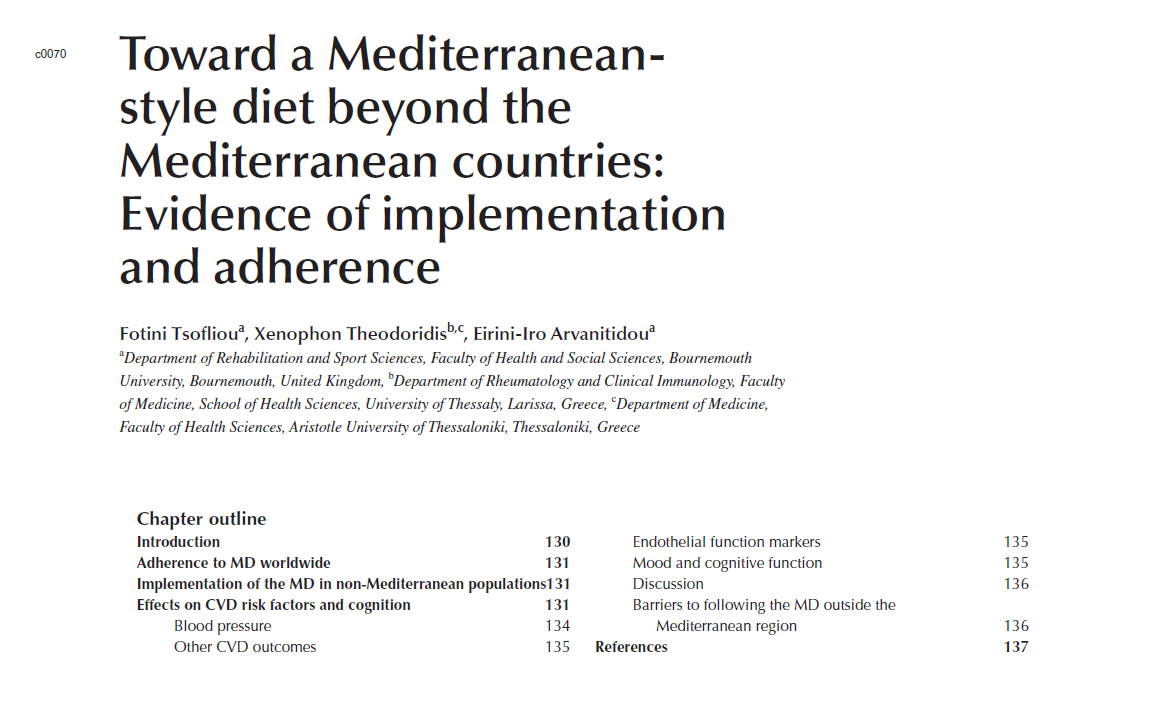
 In recognition of the important contribution that early career academics play in driving research for the future, we are delighted to continue the BU Academic Targeted Research scheme to attract and recruit talented individuals in targeted research areas. Following the successful recruitment of five new posts, we will employ one other new Senior Lecturer with significant postdoctoral expertise (or of comparable experience) with outstanding potential in alignment with the targeted research areas:
In recognition of the important contribution that early career academics play in driving research for the future, we are delighted to continue the BU Academic Targeted Research scheme to attract and recruit talented individuals in targeted research areas. Following the successful recruitment of five new posts, we will employ one other new Senior Lecturer with significant postdoctoral expertise (or of comparable experience) with outstanding potential in alignment with the targeted research areas: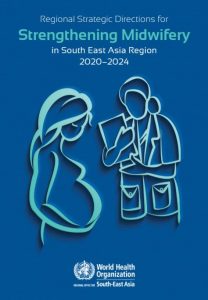
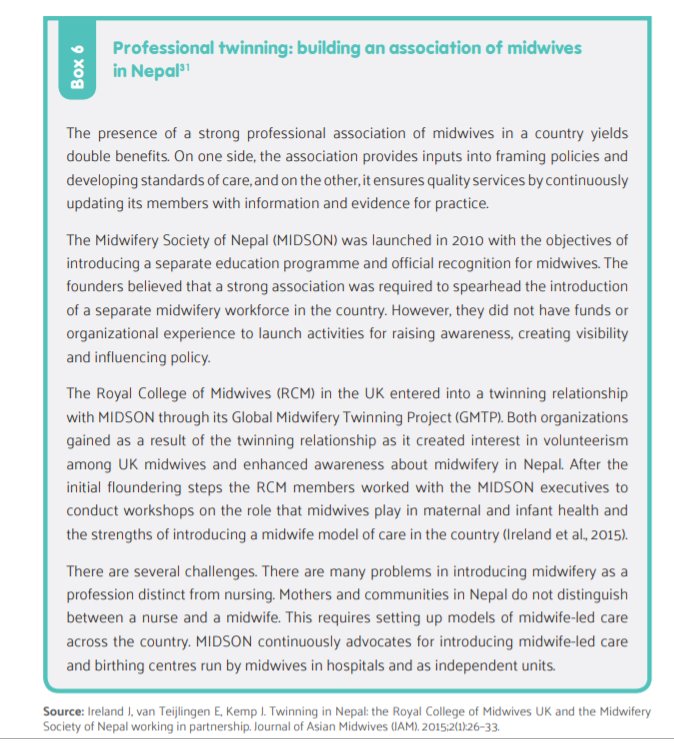
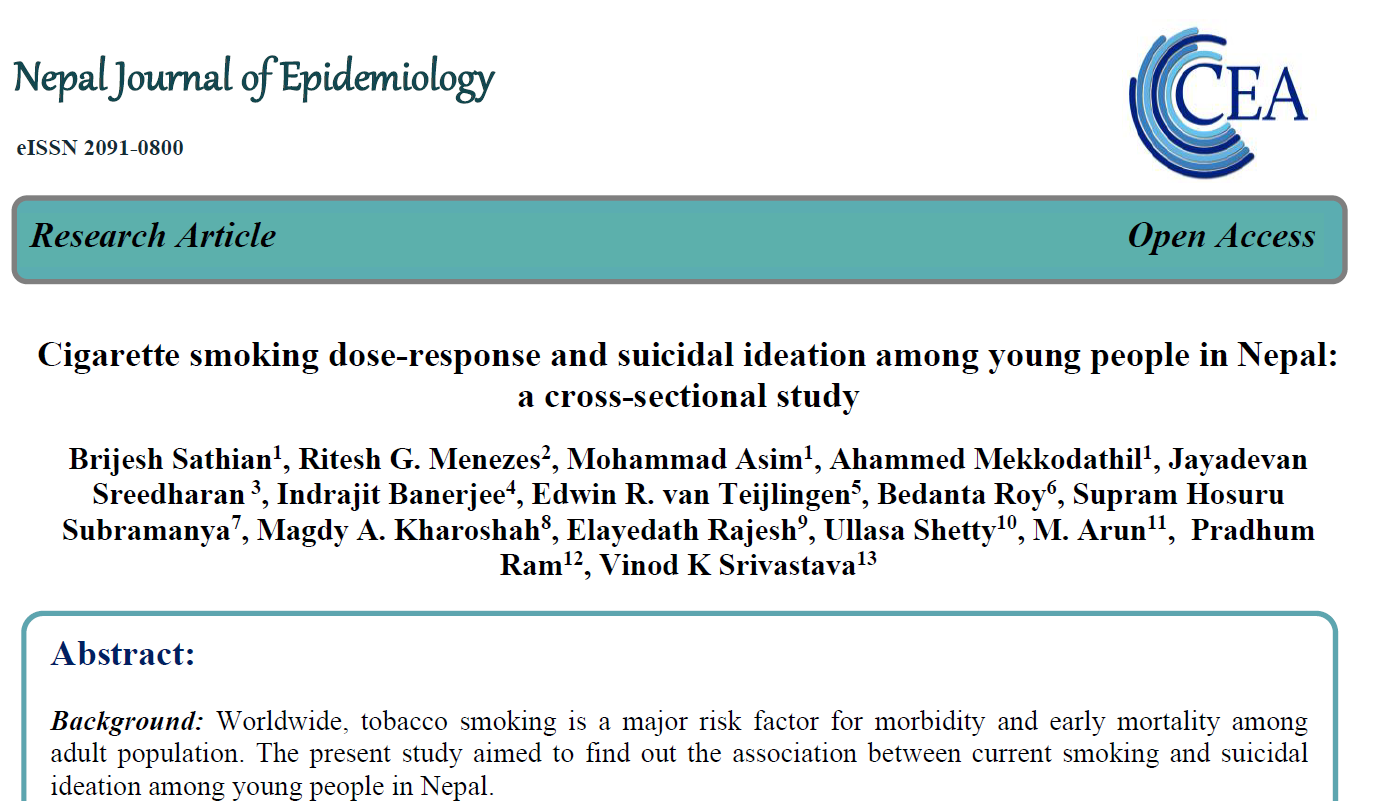



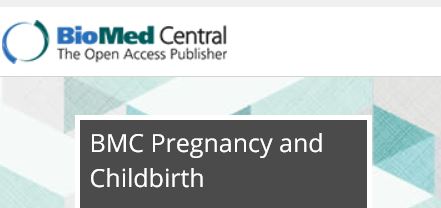











 April’s Café Scientifique – Should we help machines understand and respond to our emotions?
April’s Café Scientifique – Should we help machines understand and respond to our emotions? Postgraduate Research Experience Survey (PRES) 2024 – 2 WEEKS LEFT
Postgraduate Research Experience Survey (PRES) 2024 – 2 WEEKS LEFT Working with The Conversation: online training session – Wednesday 8th May
Working with The Conversation: online training session – Wednesday 8th May Apply for up to £1,000 to deliver an event and take part in a national festival of public engagement with research
Apply for up to £1,000 to deliver an event and take part in a national festival of public engagement with research MSCA Postdoctoral Fellowships 2024
MSCA Postdoctoral Fellowships 2024 Horizon Europe News – December 2023
Horizon Europe News – December 2023